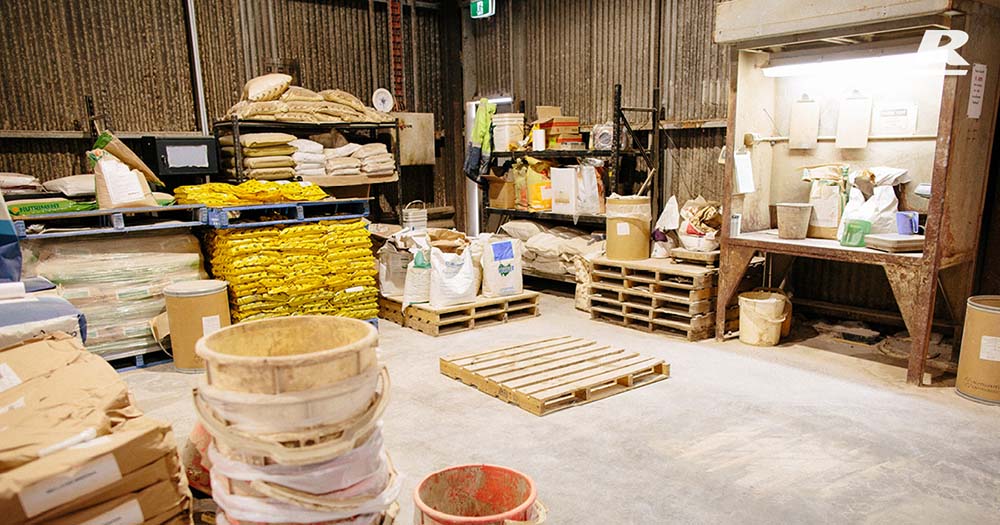What additives should be in your feed?
A lot of additives are imported and so are likely to be substantially dearer this year than previous years. There are issues with freight and also manufacturing capacity, both of which mean longer delays and hence shortages which drive prices up. The Aussie dollar is also lower than ideal for anything that is imported, so this is another contributing factor. This will particularly effect amino acids, organic acids, essential oils, vitamins and fats, bicarb, and urea. Aside from price, it might also be that you just can’t access the additive that you really want from time to time, but hopefully there will be an alternative for your situation.

Must haves
- It is important to meet calcium (Ca), phosphorus (P), and magnesium (Mg) needs of the cow as the priority. This means using lime (40% Ca), dicalcium phosphate (DCP) or mono dicalcium phosphate (MDCP), and either magnesium oxide (60% Mg) or magnesium sulphate (30% Mg).
- Salt is important to provide for sodium requirement to get rid of surplus potassium (which the cow has no requirement for). It can also be a good barometer for gut health and cows with high somatic cell counts.
- In terms of buffers, the best value is likely to come from Acid Buf (80 g per cow per day = recommended) this year, with twice the buffering capacity of sodium bicarb and not double the price. Bentonite (Arumpo in particular) is registered as a buffer as well, and also has the ability to soak up non-protein nitrogen (which can be an issue when pasture enters the system), and also some mycotoxins.
- It is important to have a vitamin and trace mineral premix included, particularly for fresh cows. This is important for somatic cell count, hoof health (to prevent lameness), and fertility. You might still add more organic trace minerals and perhaps some biotin to harden hooves in Autumn and through winter, bearing in mind that it takes 3 months of adding in the extra zinc and biotin before it will be of any assistance to you in terms of lameness.
- Most customers also want some oil or molafos to keep the dust down and help stick some of the finer ingredients to the grain particles. The price of oil has gone through the roof so we are trying to use more molafos and less oil to help manage the cost.
Discretionary additives – to cover common nutritional issues:
Mycotoxin binders – endophyte issues, photosensitivity, mouldy silage. If you genuinely have an issue with any of these and you put a mycotoxin binder in, you will have a different herd of cows within a couple of days.
Zinc oxide – facial exema and photosensitivity
Betaine – heat stress and as a methyl donor for fresh cows. This is an additive that needs to be in the cow feed for a fortnight or so prior to really seeing the benefits. If you are in an area where you will have prolonged periods of heat over the summer, this additive is well worth feeding. It is best to feed at the full feed rate.
Sugar – if you have a lot of non-protein nitrogen coming from pasture and/or possibly silage, sugar instead of some grain, could be beneficial. It is very expensive so you wouldn’t necessarily add it for insurance this year. If you are smelling ammonia in the dairy, or the milk is frothing up in the receival can, or there are urine scalds in the paddock, sugar will definitely help.
Monensin/lasalocid/bloat oil – if you are seeing bloat. Free choice salt is also worth a try as sodium can help disperse the bubbles that build up and cause the bloat.
Eskalin – as a nutritionist, I can’t recommend Eskalin, but what I can say is that if you have added in appropriate levels of buffer and you know you are pushing grain feeding limits, most vets won’t say no if you tell them the levels of grain you are feeding.
There are lots of potential options for additives, most of which promise improvements in milk production, feed intake, fertility, and/or general animal health. However, the result from feeding many of them is quite difficult to see. No one ever hands you a cheque and says this is your return from feeding our new feed additive.
If you’d like to increase your livestock farming gains and get professional feeding advice. Call 1300 REID FEED or enquire here >